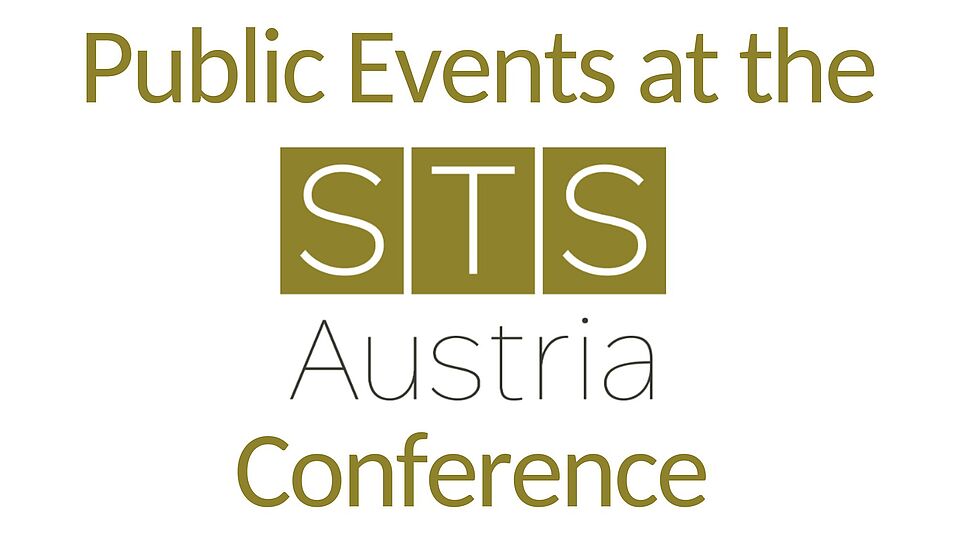With over 100 participants expected, we are looking forward to a great event. Everyone is invited to join the conference for the public sessions, which will take place on Nov 27th -29th at the Austrian Academy of Sciences. The public part of the conference promises to be engaging and informative, featuring distinguished speakers and thought-provoking discussions on activism in/and/about STS.
No need to register, just visit us and take the opportunity to mingle with the Austrian STS community, international scholars and foster meaningful connections! There will be refreshments and time to meet and chat after the keynotes and discussion.
Public Keynote 1: Threshold Infrastructures. Pedagogies of Entangled Topographies by Pelin Tan (Batman University)
Monday, Nov 27th, 17:30, Sitzungssaal
Chair: Monika Halkort
About
Structural violence and inter-colonial memory are deeply integrated with the landscapes and topographies of local communities, where fragments of layered geontologies operate. The effects of conflict and the active renegotiation of borders demand a transformation in the way that infrastructure is approached and worked with. Here, infrastructures that exist in thresholds such as care, solidarity, and commoning are function and sustained through survival pedagogies and communal interdependencies. In this context, the matter of the scale of threshold infrastructure lies between the planetary and subjectivity in the site of the commons. This presentation will share the experience and methodology of engagement, failures, and solidarity between research methodologies and artistic research in the realm of more-than-human rights and socio-spatial justice. Questions will be the core part of the discussions: How is research possible in a fluid and unconditional conflict territory? How artistic phenomenologies may create many ways of knowing and social coexistence? How critical mapping can be used for the testimony of the more-than-human rights violations? How the rights of non-human assemblies in extractive zones can be supported through art and architectural solidarity? How eco-female labor is creating resistance against slow violence? How pastoralist practices are interrupted through territorial control? How the patchy Anthropocene approach can be combined with artistic research? How to build the De/archive of Tigris Phenomenologies? This lecture will consider the value of balance between theory and activism, the distribution of power of agencies, the broken narratives of dispossession, and the limits and potentialities of artistic practices/research.
Public Keynote 2: Impossible 'Choices' — Activism in the Academy by Katta Spiel (TU Vienna)
Tuesday, Nov 28th, 18:00, SE 1
Chair: Juliane Jarke
Sign Language Translator: Antonia Maier, Anja Pfneisel
About
The shaping of our socio-technical environment is predominantly the privilege of a comparatively homogeneous group of people, mainly white, mainly western, mainly within an age range of 20–40 years old, mainly cis-male; with not just amusing, annoying or irritating, but also deadly consequences for anyone else. Associated academic research is similarly reduced to these perspectives; particularly in a German-speaking context. Personally, I’m disabled and I’m inter*/trans*, and the academy others me as deviant along both of these lines. I continuously cross boundaries by simply being in an academic space and pointing out the ways it systematically tries to exclude me and my peers. Try being nonbinary in a field that is, fundamentally, built on binary notions, materially and epistemologically.
The research environments I encounter, locally and internationally, seem fundamentally unprepared for my presence. I’m researching technological design for neurodivergent people and keep on being reminded how low my colleagues’ regard is for my peers and myself, how they dehumanise our being. What I do can be called critical participatory research, where I focus on marginalised perspectives, particularly around notions of gender and disability. Though, even when I conduct literature reviews, write essays or do more theoretical work, my work is always seen as activist. Dispassionate research is what we expect and value, passionate research is activism. Yet, I find myself with status, with a research position from which I speak. And what else to do with it than starting to push within existing structures, to push the boundaries to make space; not just because this increases the relevance of the knowledge we produce but because it is the just thing to do. What if not transgressing those boundaries will yield more inequitable processes in the creation of our socio-technical environment? What good are we for as researchers, if we uphold artificial and exclusive boundaries? Activism can be the right choice; but having that choice constitutes a privilege. Activism is inevitable for me, because my mere presence is troubling. It’s not a choice.
Biography
Katta Spiel is an Assistant Professor for ‘Critical Access in Embodied Computing’ at TU Wien. They research marginalised perspectives on embodied computing through a lens of Critical Access. Their work informs design and engineering supporting the development of technologies that account for the diverse realities they operate in. In their interdisciplinary collaborations with neurodivergent and/or nonbinary peers, they conduct explorations of novel potentials for designs, methodologies and innovative technological artefacts. They received their PhD in 2018 from TU Wien and after a year at KU Leuven, they conducted postdoctoral research as an FWF-Hertha Firnberg Scholar, also at TU Wien. Their work has received several international and national awards, including the ‘SICGHI 2020 Outstanding Dissertation Award’ as well as the ‘Förderungspreis der Stadt Wien in der Sparte Mathematik, Informatik, Naturwissenschaft, Technik’ in 2022, and, most recently an ERC Starting Grant.
For further information, please refer to the website of the STS Austria Conference: http://www.sts-austria.org/2023/10/13/conference-programme/

